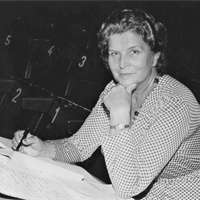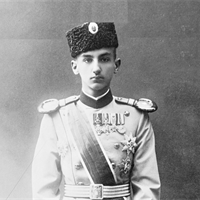Vojvoda Vuk | Origin of Street Names
- Nikola Igračev
- 3 min
- 9 December 2020.
- Entertainment
Vojin Popović (1881 - 1916), better known to the people as Vojvoda Vuk or the Dragon of Pčinja, was one of the most respected and courageous Serbian warriors whose lifespan was cut short but filled with numerous military exploits and heroism, enough to never be forgotten by Serbian history.
He was born in Sjenica, at the foot of Pešter, still a part of the Ottoman Empire where the Serbian people lived under extremely difficult conditions, dreaming of freedom for generations.
Observing his father's suffering at the hands of Turkish authorities during his early childhood, Vojin Popović developed a strong aversion to injustice, a sense of struggle for freedom, and a thirst for revenge as a child. Undoubtedly, this greatly influenced the development of his unwavering and uncompromising character.
Managing to escape from Sjenica, Vojin Popović's family settled in Kragujevac in 1886, where the future vojvoda Vuk completed elementary school. Following the spirit of the time and the unwritten rule for most Serbian boys at the end of the 19th century, he continued his education at the Military Academy in Belgrade.
Inspired by the ideals of freedom promoted by the official state authorities of the Kingdom of Serbia at the beginning of the 20th century, Vojin Popović joined the Serbian Chetnik detachment in 1905. Operating in the southern and Old Serbia region (today's Macedonia), they engaged in guerrilla warfare against Turkish, Albanian, and Bulgarian punitive expeditions, particularly brutal towards the Serbian population in these areas.
In the following decade, Vojvoda Vuk or the Dragon of Pčinja, as affectionately called by his comrades, participated in all liberation wars on almost all fronts across Serbia. He fought in both Balkan Wars, the famous battles at the beginning of World War I (Cer and Kolubara battles), the retreat through Albania, and ultimately, the breakthrough on the Salonika Front, where he laid down his life.
Widely renowned for his fearlessness, exceptional strategic and tactical knowledge, Vojvoda Vuk was considered an officer whose courage almost placed him among mythical heroes. As a just commander of the Volunteer Detachment, unlike most high-ranking officers, he led his troops from the front lines. Contemporary accounts state that he never sought shelter during battles. He embodied military honor and loyalty to oaths, reminiscent perhaps only of characters found in Russian novels.
Devoting almost his entire life to fighting for liberation and unification (Vojvoda Vuk was a member of the organization Unity or Death, better known as the Black Hand), Vojin Popović held family values dear in his private life, showing no interest in a career or public engagement.
On the eve of the Great War, he managed to marry Jelisaveta Karakašević from Belgrade and they had a daughter together. However, due to a twist of fate, he never had the chance to see or meet his only child.
Vojvoda Vuk lost his life at the age of 35 in one of the "impossible" missions assigned to his Volunteer Detachment. The mission involved capturing the heavily inaccessible Staravinski peak in Macedonia and defeating the significantly larger Bulgarian army.
At the moment of their commander's death, Vojin Popović's comrades were left speechless and in disbelief. It is recorded that at the funeral of the vojvoda at the military cemetery in Zeitenlik, his comrade and friend, the powerful and controversial Dragutin Dimitrijević Apis, cried like a child.
The remains of Vojvoda Vuk were transferred in 1923 from Zeitenlik to the New Cemetery in Belgrade, where they were reburied with the highest military honors. Thirteen years later, a magnificent monument was built in the park on today's Topličin Venac in Belgrade, dedicated to the great hero, Vojvoda Vuk.
In addition to that, several streets in Serbian cities and villages today symbolically bear the name of Vojvoda Vuk.


